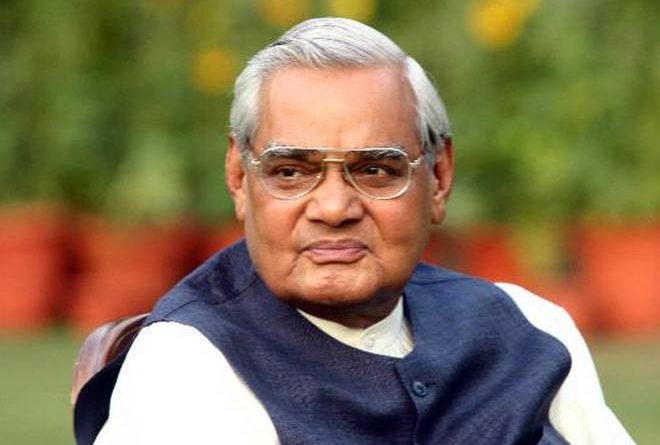Atal Bihari Vajpayee – The Shining Star That Will Never Fade!
Atal Bihari Vajpayee, one of the noted icons of Indian politics died on August 16th 2018. The common populace felt bereaved through the loss of this stalwart who has been known for being a marvelous leader, a poet, an eloquent orator and above all a great human being who was charismatic enough to make the transformations! The only Indian Prime Minister outside the fold of INC who served full five year term, he actually held the post thrice in his lengthy political career that spanned no less than 4 decades! For the first time, he served for 13 days, the next time for 13 months and then from 1998 to 2004, he served the complete 5 year term while leading a mammoth coalition led by the BJP (Bhartiya Janata Party). He also held the post of Minister of External Affairs in GOI during the Janata Party government led by Morarji Desai from 1977 to 1979.

However, the contribution of Atal Bihari Vajpayee to Indian politics has been larger than life! No wonder, he was conferred the Bharat Ratna (2015) – the highest civilian honor of India. He was also awarded the second most prestigious civilian honor of India – Padma Vibhushan in 1992.

Critics admired him as a great being!
Atal Bihari Vajpayee who was a bachelor for life got active in politics very early at the age of 16 through his association with the rightwing grassroots organization RSS or Rashtriya Swayamsewak Sangha of which he became an active member prior to Indian independence in 1942! His association with RSS was decisive in instilling a definite political thought in him that guided his vision throughout his life and political career.

Though RSS has been a much debated organization among the critics here in India, Atal Bihari Vajpayee’s association with it was significant enough to the extent of re-definition! His defense of Sangh’s ideology was subtle enough to satisfy even the harshest critics. Such was the influence of Atal Bihari Vajpayee! His ability to present the complex topics with simplicity earned him the tag among the most influential politicians of India. However, the definitive attribute of his political life was his unflinching character that kept his stature tall even while he was sitting in the opposition.

The making of a poet and politician – how it was accomplished?
Born on 25th December, 1924, to parents Krishna Devi and Krishna Bihari Vajpayee in Gwalior, he adopted a different path very early. He refused marriage and preferred to keep nation service as the top aim of life; and he emerged the victor in this pursuit! He graduated with distinction in Hindi, English and Sanskrit from Gwalior’s Victoria College (now Rani Laxmi Bai College) and then completed his post graduation (M.A. – Political Science) from DAV College of Kanpur. His interest in languages and politics blended in him the unique value that became evident in the form of a much revered Prime Minister who was also a poet, writer and a speaker of exceptional worth. People were mesmerized by his speeches and placed much confidence in his political resolve to attempt solutions for even the gravest problems of social economy.

Atal Bihari Vajpayee – a leader with resolve!
Atal Bihari Vajpayee declared India’s second nuclear test – Pokharan II in 1998 while bracing the challenge of international pressure and allied sanctions. Simultaneously, he also showcased a mature ideology for bettering the Indo-Pak relations and decided to travel to Lahore by bus to meet Pakistani Prime Minister Nawaz Sharif in 1998. This was followed by another attempt when he invited the General President Parvez Musharraf to India. In the meanwhile, in his leadership, India also defeated Pakistan forces in the historic Kargil War (1999) along LOC in the state of J & K.

Such decisive measures tested his calibers as a brilliant leader of Indian politics and he came out with glare every time. One of the striking resemblances in the life of Atal Bihari Vajpayee relates to his will to demonstrate successfully before the opponents. In his writings also, we find the same resolve and strength showcased. He wrote several of poems and prose works, some of which became very popular also. His chief works include – Kaidi Kaviraj Ki Kundalian, Meri Ekyavan Kavitaen, Kya Khoya Kya Paya, Sankalp Kaal, Gathbandhan Ki Raajneeti, Decisive Days, Bindu Bindu Vicara, Nayi Chunouti – Naya Avsar and New Dimensions Of India’s Foreign Policy.





Itís hard to find well-informed people for this subject, but you seem like you know what youíre talking about! Thanks